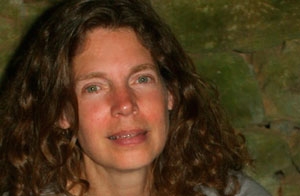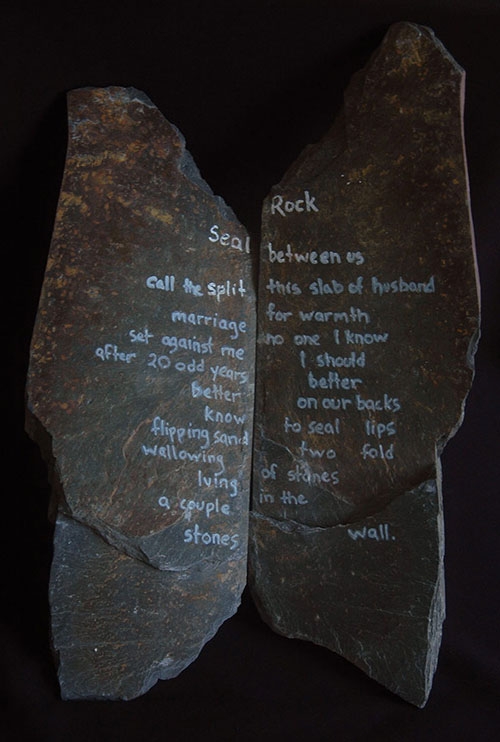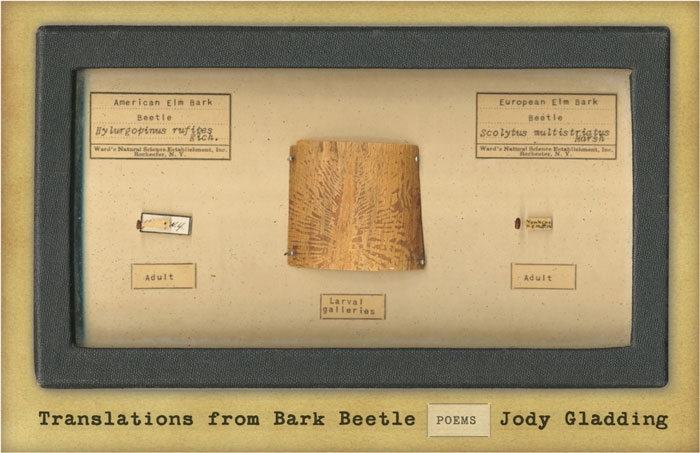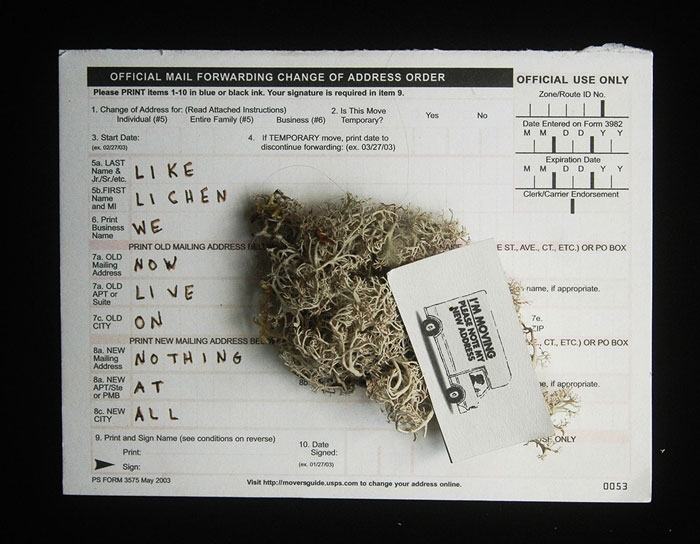Jody Gladding makes stuff. It has voices. It has tongue depressors. It has tree bark, egg shells, and ink writing on stones. It’s what happens when poets give objects a voice, animating the world around us.
Jody Gladding is an accomplished poet,—winner of the prestigious 1993 Yale Younger Award,—translator of French, professor at Vermont College of Fine Arts MFA program, and she will be reading at 2PM, Sunday at the Bookplate. You should be there.
Academics somewhere gave Gladding’s work the genre name, “object-poetry,” which, in my humble opinion, denatures what she actually does. While “Environmental Artist” or “Eco Poet” might give us some sort of handle in a slippery world of literary nomenclature, Gladding’s poetry collapses our relationship to the environment into an intimate encounter with the physical world and changes our relationship to it. To call it Object Poetry, to me, would be like saying Joseph Cornell made shadow boxes.
This artist creates, works and plays in a creative system that bridges the natural world with poetry. But it’s even more than that. It’s when the object—a piece of bark, a stone, a feather—is given a language to speak to us. In an article by Darren Higgins, appearing in the August issue of “Numéro Cinq” Galdding says:
“I do feel that the landscape has something to say, not to say to us, in some romantic or mystical way, but that the landscape is speaking all the time and we can only benefit by listening, which means expanding the boundaries of what we allow to be language.”
The trajectory of Gladding’s work is a study in structural evolution. “My poetry has moved from the left vertical margin of the page,” she said during a phone interview with the Spy. “Sometimes the poem is just not happy on the page.”
Indeed, they have moved from the strict formality of the left-justified line. Her poems often appear as lateral word streams, clusters and constellations of ideas with some words in bold to offer yet another level of associations between them.
In her new book, “Translations from Bark Beetle,” Gladding has not only left the two-dimensional surface, her page “is” the three dimensional object wherever she may find it.
The Poetry Foundation quoted an interview with Gladding for Milkweed Editions with: “I’m very interested in how poetry exists in 3-dimensional space, in physical acts, in the world at large. For me, this has led to my poems increasingly moving across the page, then off the page (sometimes coming into being as/on objects). The shapes they take on the pages of this book are the traces of that movement.”
Jody will read at the Bookplate Sunday at 2PM.






Write a Letter to the Editor on this Article
We encourage readers to offer their point of view on this article by submitting the following form. Editing is sometimes necessary and is done at the discretion of the editorial staff.